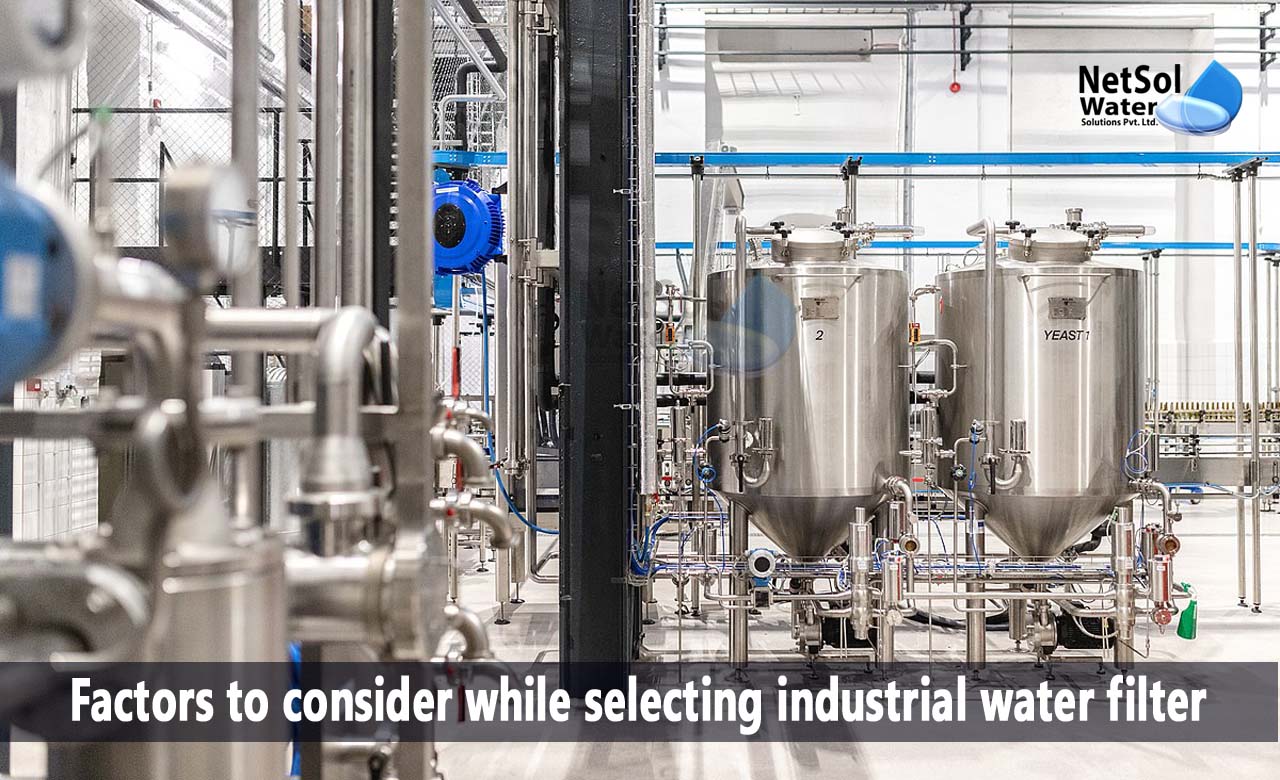There are benefits and drawbacks to various filters used in industrial water treatment. To obtain the necessary level of filtration, all elements must be taken into account. The performance of your industrial water filters will be greatly influenced, by the elements that are listed below in this blog.
Top 7 Factors to consider while selecting industrial water filter
1- Contamination level
If the raw water has a significant number of solid contaminants, there is the use of sedimentation pre-treatment. If the water is highly contaminated, you will also need to perform periodic cleaning and filter replacement.
2- Filtration capacity
The use of the product water determines how to calculate the treatment volumes. Supply sources, pipe diameters, and pumping requirements are arranged for this.
Applications that call for continuous filtration can tax systems and need round-the-clock labour. Duplex filters can be utilized in these circumstances to allow filter maintenance, while keeping the treatment process running. You can utilize straightforward filters and schedule a stop time for maintenance, if the treatment can be carried out in batches.
3- Quality requirements for the required filtering
The kinds of filters you want for your operation will depend on the water quality you desire, after the filtration procedure. If you are filtering water for people to drink, your filters must be able to get rid of substances that are dangerous to people, such as the quantity of coliform bacteria, heavy metals, and any other potentially toxic material.
4- Your process's specifications and operating conditions
Temperature, pressure, and flow rate are all necessary for operation. There is an ideal and maximum operating pressure, temperature, and flow for each filter.
Lack of consideration for these factors in a design can result in pressure dips or inadequate contact times, which can harm your equipment and compel you to stop the process.
5- The contaminants' nature and properties
The size and type of contaminants that need to be filtered must be considered. Different types of filters will be needed for pollutants that are solid or dissolved. To prevent that the pollutants change and that the system needs to be constructed, it is essential to conduct regular analyses of the pollutants in industrial filtering.
We must also establish whether the toxins endanger the health of the workers. If so, you will want a more specialised facility and support tools, to provide the highest level of health protection for the operating staff.
6- The filters' operating costs
The initial cost of the plant as well as other costs like installation fees and site preparation must be taken into account.
7- Costs associated with wastewater disposal
Pay attention to the expense of extended downtime for servicing and maintenance.
Where can you use an industrial water filter?
Different sectors can employ industrial water filters. Industrial water filters can be tailored to fit the specific requirements of your application. They play a crucial role in the following areas:
· Hospitality
· Automobiles
· Paper manufacturing
· The industries of food and drinks
· Chemical substances
· Applications in agriculture and irrigation
· Treating drinking water
· Mining
· Petrochemicals
· Water treatment for waste
· Industries for dyeing
· Pharmaceutical water treatment.
What components make the greatest industrial water filters?
The materials employed must be strong enough to sustain high pressure operating conditions, and be oxidation resistant. Because, it is resistant to temperature and pressure changes and meets hygienic standards, stainless steel makes for the ideal material.
Reverse osmosis systems can use stainless steel membrane holders, to increase efficiency and lifespan.
Industrial filtration systems can instead use external materials made of plastic, polypropylene, and fibreglass that can endure high pressures because they are both rust-resistant and less expensive. When flows exceed line tanks, engineered carbon steel industrial tanks are also an option.
Conclusion
With all of the contaminants that might be present in water, it's critical to realise that they can be managed and controlled to make them less of an issue.
Your systems can be shielded from the harm that each pollutant may bring about, if the appropriate water treatment, water quality balancing for each system, and equipment are used.
Netsol Water is Greater Noida-based leading water & wastewater treatment plant manufacturer. We are industry's most demanding company based on client review and work quality. We are known as best commercial RO plant manufacturers, industrial RO plant manufacturer, sewage treatment plant manufacturer, Water Softener Plant Manufacturers and effluent treatment plant manufacturers. Apart from this 24x7 customer support is our USP. Call on +91-9650608473, or write us at enquiry@netsolwater.com for any support, inquiry or product-purchase related query.



